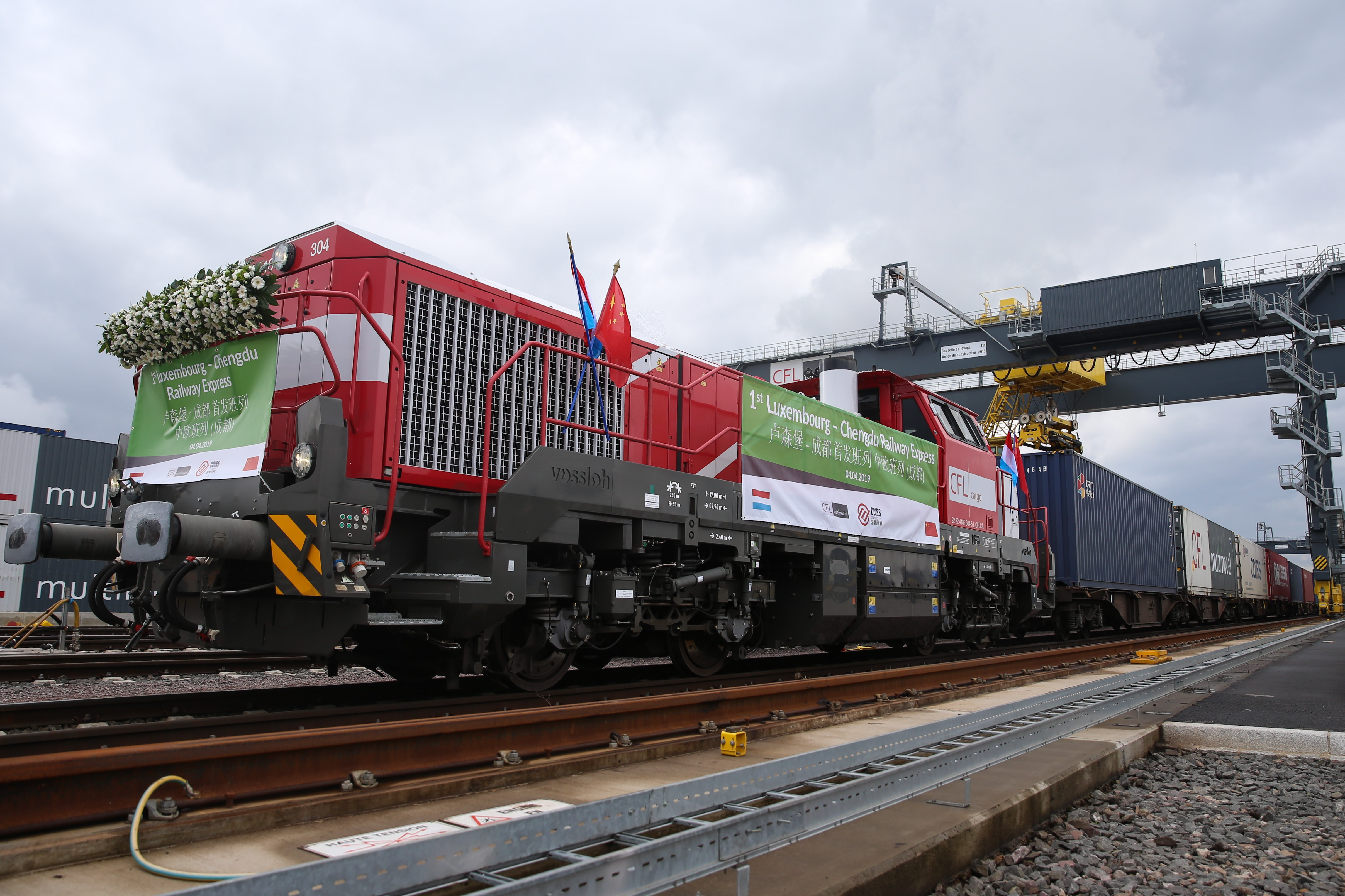2nd Belt and Road Forum hopes to focus on BRI's multilateral approach
- By Rabi Sankar Bosu
 0 Comment(s)
0 Comment(s) Print
Print E-mail China.org.cn, April 21, 2019
E-mail China.org.cn, April 21, 2019

After the success of the first Belt and Road Forum for International Cooperation (BRF) in May 2017, China will host the second BRF under the theme "Belt and Road Cooperation: Shaping a Brighter Shared Future" later this month in Beijing.
The second BRF comes at a unique time when the country is hosting multiple diplomatic events to mark the 70th anniversary of the People's Republic of China this year. Undoubtedly, the upcoming BRF is of great importance, owing to the increasing number of participating countries – nearly 40 foreign leaders are attending, which demonstrates China's commitment to sharing its development opportunities with more countries in the world.
The Belt and Road Initiative (BRI), which comprises the Silk Road Economic Belt and the 21st Century Maritime Silk Road, was first proposed in 2013. Since then, the BRI has become a popular initiative and one of the best platforms for international cooperation. The gargantuan program, which is now a commonly used term in world politics and global economics, is a Chinese solution incorporating oriental wisdom. It is designed to pursue common prosperity while focusing on "humanity with a shared future."
Through six years of hard work, BRI puts China at the center of an emerging regional and global order while boosting its aspirations toward integration. Despite some criticism, this initiative, with its spirit of openness, inclusiveness and transparency, has been widely accepted as a mutually beneficial program. So far, a total of 124 countries and 29 international organizations have signed BRI cooperation documents with China. According to data from China's Ministry of Commerce (MOFCOM), under the initiative, China has set up 82 overseas economic and trade cooperation zones that have offered host countries a total tax revenue of over US$2 billion and 244,000 jobs.
In the past six years, the BRI has opened the floodgates of Chinese investments through the Asian Infrastructure Investment Bank (AIIB), the Silk Road Fund and the New Development Bank in virtually all types of transportation infrastructure. This includes rail, roads, ports, airports, electricity generation, telecommunications and various other forms of connectivity in the Euro-Asiatic region, Africa and Latin America.
Though some countries dramatize China's financial aid to developing countries as pure "money relations" or "debt trap," Sri Lanka's Matara-Kataragama Railway Extension Project (Phase 1), the Mombasa-Nairobi Standard Gauge Railway, the Ethiopia-Djibouti Railway, the China-Laos railway, the upgrade of Pakistan's Gwadar port, Sri Lanka's Hambantota Port and Greece's Port of Piraeus, to name a few, bear the stamp of China's assistance to promote development in participating countries through BRI projects.
Most importantly, within a brief period of six years, this "project of the century," built on the spirit of "peace and cooperation, openness and inclusiveness, mutual learning, and mutual benefits," has added new impetus to China and the rest of the world in the promotion of globalization. It should be noted here that UN Secretary-General Antonio Guterres has encouraged the UN to cooperate with the countries engaged in the BRI in order to achieve the Sustainable Development Goals (SDGs) of the 2030 Agenda.
Over the past six years, the achievements of this mega-scale development initiative have already gone far beyond earlier expectations. It has created a unified integrated network of physical infrastructure, intellectual capital and digital connectivity encompassing 100 countries, with nearly 70% of the world's population, 55% of GDP and 24% of global trade. The global confidence in the BRI is shown by the fact that the first BRF in May 2017 attracted over 30 world leaders, as well as representatives from over 130 countries from four continents.
African countries have benefited and continue to benefit from this initiative. Indeed, the BRI has had an impact on the lives of the African people through numerous development projects. A number of Latin American and Caribbean states also recently signed a memorandum of understanding to join the BRI. The 16 countries in Central and Eastern Europe form an important part of the BRI and are aspiring to improve their infrastructure under the auspices of the BRI. On March 23, Italy endorsed the BRI, becoming the first among the G7 most industrialized nations to do so. German Chancellor Angela Merkel has also described the Belt and Road infrastructure plan as an important project that Europeans want to participate in.
The BRI has been playing a very active role in building and upgrading physical infrastructure in ASEAN and South Asian countries with railway, power plant and property investments. Pakistan, Bangladesh, Sri Lanka, Nepal, Maldives, and Myanmar are already beneficiaries or supporters of BRI projects.
The BRI is dedicated to the development of all countries across the world. It is hoped that the world will shed its reservations over the BRI, support the common development approaches of the BRI and participate in the upcoming BRF which can provide all stakeholders a chance to enrich their economies and improve the living standards of their people.
It is hoped that during the high-level meeting, China, all BRI partners as well as invited guests, politicians and researchers will focus on the multilateral approach of this cross-continental initiative. If implemented well, the BRI will create a path to peace, inclusiveness and better anchor free trade and globalization in order to bring its benefits to all. At the same time, the upcoming BRF might be a golden opportunity for China and Chinese enterprises to allay concerns by other countries over the initiative and ensure that the whole world can benefit greatly from the BRI's model of win-win cooperation and mutual trust.
Rabi Sankar Bosu, Secretary of New Horizon Radio Listeners' Club, West Bengal, India.
Opinion articles reflect the views of their authors only, not necessarily those of China.org.cn.
If you would like to contribute and have specific expertise, please contact us at opinion@china.org.cn.






Go to Forum >>0 Comment(s)